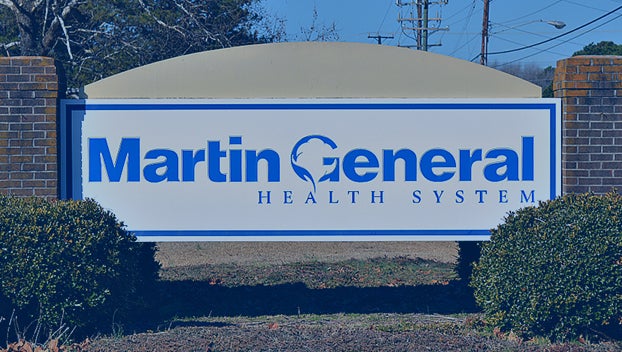BRHS audit reveals dire financial issues
Published 1:09 am Wednesday, March 9, 2011
Several concerns over accounting practices could result in fine
An audit of Beaufort Regional Health System’s financial books for fiscal year 2009-2010 paints a dire financial picture of the health-care system and uncovered several concerns with its accounting practices.
One of those concerns – the health system’s failure to report since 2005 unclaimed property such as patient refunds as so-called “escheats liabilities” – could result in a fine being levied by the state against BRHS, according to a report presented Tuesday to the BRHS Board of Commissioners.
Hospital officials, who are working to resolve the issue with the state, hope any fine associated with the error can be waived, the board was told.
The audit of BRHS and its affiliates was presented to the BRHS board by Steve Stang, an accountant with LarsonAllenLLP of Charlotte.
“The good news is we have the audit,” said BRHS Board Chairwoman Alice Mills Sadler after hearing the report. “The bad news is we should have sought outside assistance from an entity sooner.”
The audit uncovered two “material weaknesses,” two “significant deficiencies” and three matters of concern č including the unreported escheats č in internal controls in BRHS’s operations.
The audit showed that “the allowance for doubtful accounts estimate was significantly understated” and that resulted in a $4.1 million adjustment in accounts-receivable reserves and credit balances in the 2009-2010 financial statements.
The audit also identified “certain errors” in the calculation of depreciation and amortization expense, including “the software not fully depreciating certain assets, assets not being added to the software and the correct depreciation method not being consistently applied to all capital assets.” Those errors resulted in a $1.5 million adjustment in the health system’s depreciation expense.
Those were listed in the audit as “material weaknesses.”
The audit also reported that BRHS does not currently have a detailed model for estimating third-party payor settlements and that BRHS management does not receive financial information from the Shepard Center Foundation “on a timely basis to enable proper interim financial reporting.
Those were listed as “significant deficiencies” in internal controls.
The report cited the failure to reconcile certain accounts on a timely basis, the failure of resolving credit balances in accounts payable in a timely basis and the failure to file reports of unclaimed property since 2005 as issues of concern.
Stang told the board the issues cited in the audit already have been addressed by BRHS officials or are being addressed.
In addition to uncovering the problems with internal controls, the audit painted a picture of its declining financial health.
“(T)he System continues to have significant losses from operations, low cash balances, and negative working capital,” the auditors wrote in a letter to the board contained in the audit report. “These conditions raise substantial doubt about the System’s ability continue as a going concern.”
BRHS recorded an $11.2 million loss in the 2009-2010 fiscal year as compared to a $2.3 million loss in the 2008-2009 fiscal year, according to the report. A part of that loss resulted from the $4.1 million adjustment in accounts receivable, the board was told.
The report shows that the health system’s total assets decreased by $8.8 million in 2010 from $54.8 million as restated in 2009 to $46.06 million in 2010.
It also shows that cash and cash equivalents decreased by some $500,000 because of losses from operations, that patient accounts receivable decreased $5.2 million and capital assets decreased $3.5 million as depreciation expense exceeded capital improvements in the 2009-2010 fiscal year.
In the 2009-2010 fiscal year, gross revenue for BRHS decreased by $4.7 million, or 2.6 percent, from $181.8 million in the 2008-2009 fiscal year to $177.1 million and net patient revenue decreased by $6.1 million, or 8.3 percent, from $73.6 million in 2008-2009 to $67.5 million in 2009-2010, according to the report.
During the 2009-2010 fiscal year, BRHS’s total operating expenses were $80.4 million, a 2.8 percent increase over the 2008-2009 fiscal year with salaries, benefits and physician fees comprising the largest system expense, according to the report.
As of Sept. 30, 2010, BRHS had a total net investment of $28.2 million in land, buildings and equipment, a net decrease of $3.5 million, or 11.1 percent, from 2008-2009, according to the report.
As of Sept. 30, 2010, BRHS had $20 million in long-term debt, an increase of $1.3 million from 2008-2009 as a result of new borrowings totaling $5.1 million and repayments of $3.8 million, according to the report.
The report also shows that days cash on hand at the health system declined over the past three years from eight-days cash on hand at the end of the 2007-2008 fiscal year to five-days cash on hand at the end of the 2009-2010 fiscal year.
Stang said he audit showed “there may be more opportunities for aggressive cost-cutting, but cost-cutting is not the solution to building cash.”
“You can’t cut your way to prosperity,” he said. “You have to focus on how you are going to grow your revenue base.”
The audit is scheduled to be presented to the Beaufort County Board of Commissioners on Thursday.
It comes as the county commissioners are considering a recommendation from the BRHS board to accept an offer from University Health Systems of Eastern Carolina for a 30-year lease of the local health system for $30 million with the option to buy the property for an additional $10 million at the end of that lease.
Ultimately, the county commissioners will decide whether to accept, amend or reject the BRHS board’s recommendation.





